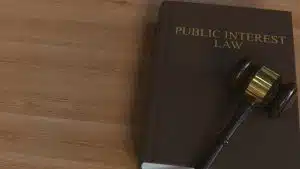
If it would be just and equitable to wind up the firm, that would be the relevant legal standard for the court.
When a company faces winding up proceedings in the public interest, it signals severe concerns regarding its operations and the potential harm it poses to stakeholders or the general public.
Inevitably, such a winding up order is often accompanied by director disqualification claims. These claims aim to hold directors accountable for their actions or inactions that contributed to the company’s demise or misconduct, ensuring that they are prevented from assuming similar positions of responsibility in the future.
Consequently, public interest winding up petitions and subsequent director disqualification claims represent crucial measures to safeguard the integrity of the business landscape and protect the interests of those affected by the company’s activities
Public interest protection
The notion of “public interest” permeates various aspects of the legal framework in the UK, encompassing a wide range of contexts. It spans from legislation that bestows or expands rights for the benefit of the general public to the courts’ role in scrutinizing the government’s interpretation and application of the law, with a focus on procedural fairness and the public interest.
Moreover, it extends to litigation claims initiated “in the public interest” to address specific concerns. These public interest safeguards play a crucial role in mitigating risks faced by individuals and companies in the UK.
While providing an exhaustive list of these risks may be challenging, they undoubtedly encompass financial fraud and the potential harm inflicted on particular groups or organizations, including the general public who may fall prey to fraudulent activities perpetrated by companies.
Consequently, the ability to wind up companies that act contrary to the public interest, such as engaging in fraudulent behavior against the general public, becomes essential in maintaining a safeguarded legal environment.
Defending a public interest winding up petition
When a public interest winding up petition is submitted, it is not necessary to provide evidence of the company’s insolvency or its inability to continue trading in its current form. The only requirement is to demonstrate that the company’s activities contradict what the Secretary of State deems to be in the public interest.
Typically, public interest winding up petitions are appropriately utilized against companies that engage in trading practices solely aimed at defrauding the general public.
However, it is crucial to acknowledge that this is not always the case, as there are exceptions to this prevailing pattern.
- A public interest winding up petition does not require proof of insolvency or the inability of the company to continue trading in its current form. The sole requirement is to demonstrate that the company’s activities run counter to the public interest as determined by the Secretary of State.
- While public interest winding up petitions are commonly directed at companies engaged in fraudulent practices solely aimed at deceiving the general public, there are instances where this is not the case.
- It is not uncommon for companies to be involved in selling new products or seeking investments for long-term projects, even operating in an insolvent state with reliance on uncertain outcomes from the development of their products.
- In such circumstances, there are substantial grounds to mount a defence against a public interest winding up petition.
Consequences of a public interest winding up petition
In the event that a winding up order is issued by the court, regardless of whether it was defended or not, it is highly likely that the Secretary of State will pursue disqualification proceedings against the directors responsible for managing the company.
While the issuance of a disqualification order is not guaranteed, directors would be wise to seek legal counsel upon receiving notice of the intention to initiate a disqualification claim based on allegations of fraudulent misconduct.
If a director chooses to minimize potential repercussions and offers a disqualification undertaking or is subsequently disqualified through legal proceedings, there is an additional risk of being subjected to a compensation order.
For more detailed information regarding the consequences faced by directors in the event of disqualification, we encourage you to explore our other web pages dedicated to this subject
Public interest proceedings generally
For comprehensive insights into the various stages involved in obtaining a public interest winding up petition order and the subsequent implications, we invite you to explore our dedicated webpages that cover the following key aspects of these proceedings:
- Complaints to the Secretary of State: Gain a deeper understanding of the process of filing complaints with the Secretary of State, which often serve as the initial step towards initiating public interest winding up petitions.
- Companies Investigations: Discover the intricacies of company investigations, including the methods employed to assess potential misconduct, fraud, or actions contrary to the public interest.
- Winding Up Petitions/Orders: Explore the details surrounding winding up petitions and orders, shedding light on the legal mechanisms and requirements involved in petitioning the court for the winding up of a company deemed to be operating against the public interest.
- Impact on Director Disqualification: Learn about the consequences faced by directors in the aftermath of a public interest winding up petition order, including the potential initiation of disqualification proceedings against them.
No matter what your specific circumstances may be, rest assured that our experienced team is ready to provide the necessary assistance and support throughout the entire process. If you have had a public interest winding up petition served or been informed your company is under investigation make contact today via our online enquiry form.
David is a Solicitor and Chartered Tax Advisor. David has many years experience of advising clients on Regulatory Fraud matters, involving the smallest to the very biggest cases.
He regularly lectures to the City of London Police on these and related issues. He regularly advises on Confiscation and other consequences that flow from money laundering offences
